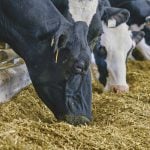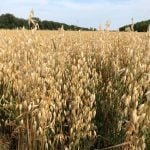
UPDATED: Mail strike disrupts grain sample delivery
The Canadian Grain Commission has asked farmers to consider delivering harvest samples directly to CGC offices, services centres or approved drop offs as Canada Post strike delays mail

Mail strike disrupts grain sample delivery

Advance payment changes still mostly in waiting
APP cash advances for 2025 included a credit-worthiness change, but another three recommended updates for the federal farm lending program are still in limbo

Canadian dairy farmers firm on expecting trade protection
Recent Canadian laws limit trade concessions on dairy supply management, but with U.S.-Canada trade negotiations set to heat up, the first big test might be looming

Livestock leads Canada’s farm economic outlook
Canada’s general economic growth is in decline, but pockets of good news exist in the agricultural world, largely for cattle and hogs

Media reports suggest U.S. dairy access to Canada a topic of conversation in Ottawa

Executive editor recognized for lifetime achievement
Laura Rance-Unger looks back at four decades as a farm journalist and editor, including a long history at the reins of the Manitoba Co-operator

Five Glacier FarmMedia writers earn awards for farm journalism
Canadian Farm Writers’ Federation also honours GFM executive editor Laura Rance

Controversy fails to sink plant growth regulator use in Manitoba oats
Plant growth regulators in oats got some bad press last year, but some farmers maintain they’re helpful



